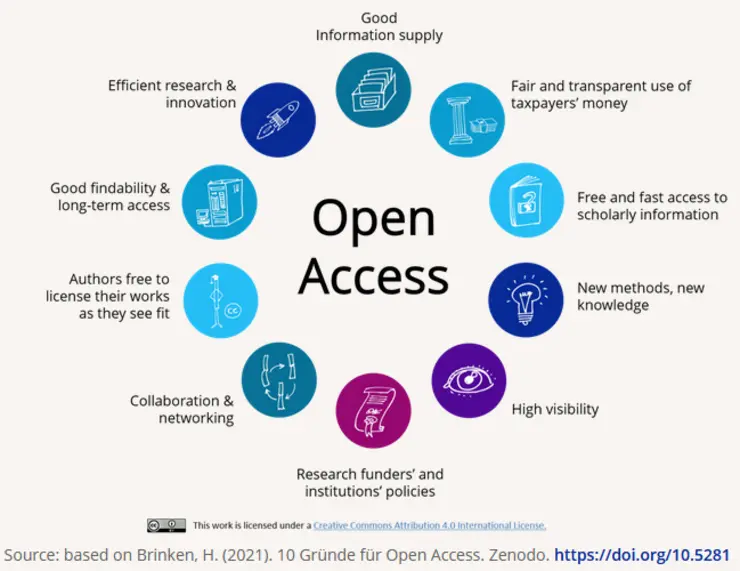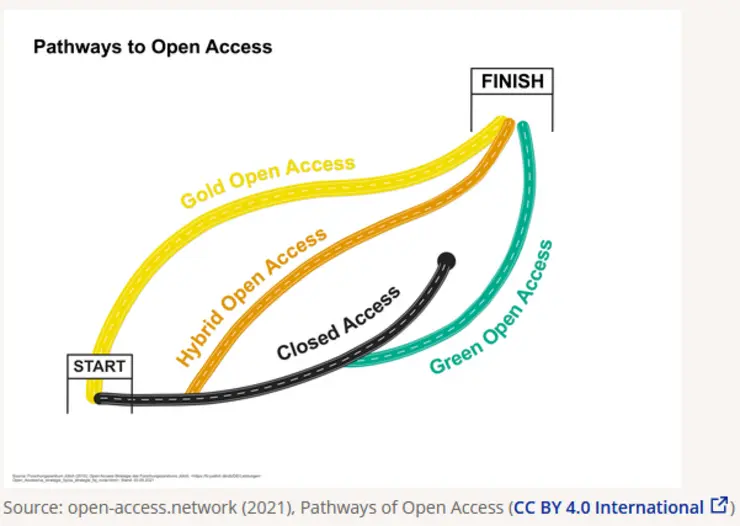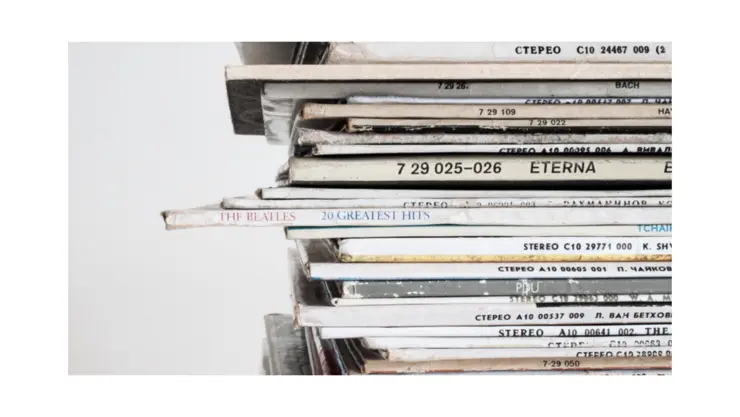As an open access publication service provider, the Electronic Text Center (ETC) of the Erfurt University Library offers various services to members of the University of Erfurt. Among other things, the ETC provides genereal information about open access publishing of scientific research results as a first or second publication, about publication fees (Article Processing Charge, Book Processing Charge), about your rights as an author in open access publications or generally about the topic of open access. Should you require further information or have specific questions, please do not hesitate to contact us!
What does open access mean?
Open access is an alternative form of scientific publishing and aims to ensure that scientific works are accessible free of charge on the Internet without technical or legal barriers. In particular, "author(s) and right holder(s) of such contributions grant(s) to all users a free, irrevocable, worldwide, right of access to, and a license to copy, use, distribute, transmit and display the work publicly and to make and distribute derivative works, in any digital medium for any responsible purpose, subject to proper attribution of authorship (community standards, will continue to provide the mechanism for enforcement of proper attribution and responsible use of the published work, as they do now)," Berlin Declaration on Open Access to Knowledge in the Sciences and Humanities, 2003.
Open access publications are accessible worldwide free of charge immediately upon publication, thus accelerating the scientific communication process, promoting international and interdisciplinary networking as well as research efficiency, and the visibility of research results. In contrast to closed-access publications, the exploitation rights for open-access publications remain with the authors themselves. For more information on copyright and licensing rights for open access publications, please visit our Copyright and open access page.
Gold Open Access
You can publish your publication on the Gold Open Access path. Gold Open Access refers to the first publication of scientific and scholarly works in pure open access journals, open access monographs or as contributions to open access edited volumes or conference proceedings. The works are usually quality-assured in the form of peer review or editorial review. Once published, the works are accessible worldwide free of charge and are usually published under a free license. Please note that Gold Open Access publications may be subject to a publication fee, the so-called Article Processing Charge (APC). A further development of the Gold Open Access model are publications in Diamond Open Access. In this model, scientific articles are published without authors being charged fees for processing and publication. If you are interested in funding opportunities to underwrite your APC, please see our Open Access Publication Funds and Publishing Agreements pages. You can find out how to find a suitable open access journal in the course of this page.
Hybrid Open Access
Hybrid Open Access is another option to publish your work open access. In this case, some publishers offer to publish individual articles open access in subscription-based closed-access journals. Please note that a publication fee, the so-called Article Processing Charge (APC), may also apply to Hybrid Open Access publication.
The University Library takes part in a number of transformation agreements. This gives you as a member of the University of Erfurt the option to publish Hybrid Open Access in numerous subscription-based journals from various publishers free of charge. For more information, please visit our Publishing Agreements page.
Green Open Access
Green Open Access is becoming increasingly established. The phrase Green Open Access refers to the secondary publication, parallel publication or self-archiving of your work, possibly after a certain embargo period, in an institutional or (inter)disciplinary repository or on preprint servers. Before attempting to make your publication accessible through the Green Path, please verify that your publishing contract explicitly allows self-archiving in repositories or on preprint servers . Visit our Digitale Bibliothek Thüringen page to find out how to realize secondary publication of your work in the institutional repository of the University of Erfurt .
Evaluate open access publication venues
Distinguishing trustworthy from dodgy journals and publishing offers is not always easy. For example, some publishers send unsolicited e-mails to scientists offering to publish their research (sometimes without paying publication fees). Journals and publishers that act in a dubious manner are also referred to as "predatory journals" or "predatory publishers".
To ensure that your research results will appear in reputable publication outlets, please check for quality assurance before submitting your manuscript
- Checklist for valuation the quality of open access journals
- valuation trusted journals and publishers Think!Check!Submit!
- Publishers should be listed in the Directory of Open Access Books(DOAB) or OAPENor be members of the Open Access Scholary Publishers Association(OASPA).
Please also refer to the DFG guidelines for ensuring good scientific practice
Open access journals
The Directory of Open Access Journals (DOAJ) platform lists pure open access journals. Among other things it provides information on peer review processes and publication fees, .
Directory of Open Access Journals (DOAJ)
For more than 55,000 journals the oa.finder shows you which are Gold Open Access, what impact they have, whether they charge APCs and how high those are, as well as whether the University of Erfurt covers the publication costs via a transformation contract or publication fund.
The Free Journal Network platform lists scholar-led journals that operate under the FAIR open access model. These journals are controlled by the scientific community and have no financial barriers, neither for readers nor for authors.
The platform of the Electronic Journals Library is one of the most comprehensive databases on scientific electronic journals. Using a traffic light system, you can see which access options you have to the full texts. In the case of open access journals, it is usually indicated whether the journal is available as a Hybrid Open Access journal or as a pure open access journal (INDEXED in DOAJ).
"Diamond Open Access Journals, Germany" (DOAG) is a quality-checked list of information about Diamond Open Access (OA) journals published in Germany.
Megajournals
In addition, so-called megajournals offer the opportunity to publish in Gold Open Access across disciplines. Megajournals are quality-assured by peer-review procedures. They typically have a higher acceptance rate for articles than subject-specific journals, since the selection of articles isprimarily based on basic scientific trustworthiness while the classification of the content of the articles is left to the reader. A selection:
Open access books
Repositories
The Directory of Open Access Repositories OpenDOAR is a search portal and offers access to numerous registered repositories
OpenDOAR : Directory of Open Access Repositories
The ROAR platform promotes open access to research and provides information on repositories worldwide
ROAR : Registry of Open Access Repositories
A selection of disciplinary and interdisciplinary repositories:
Digitale Bibliothek Thüringen : Publication server of the University of Erfurt
ECONSTOR : Publication server for economic literature
GESIS : Leibniz Institute for the Social Sciences
peDOCS : Repository for educational science literature



